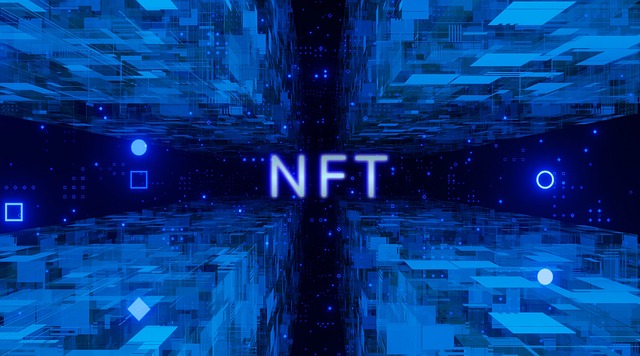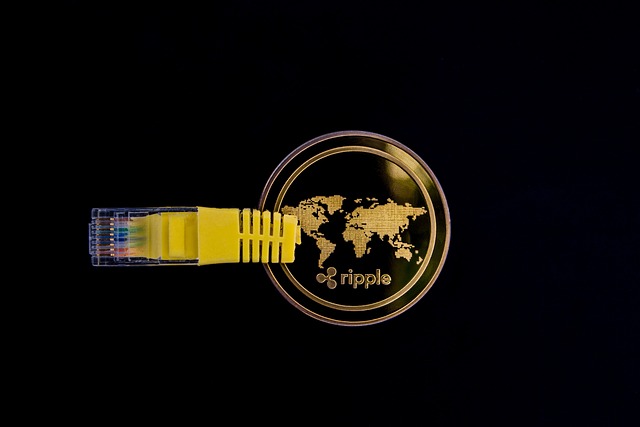The Game-Changing Potential of DeFi: Benefits for All
The Game-Changing Potential of DeFi: Benefits for All

What is DeFi and How Does it Work?
Decentralized Finance, or DeFi, refers to a new and innovative way of conducting financial transactions and accessing financial services. Unlike traditional finance, which relies heavily on centralized intermediaries such as banks and financial institutions, DeFi operates on blockchain technology. In simple terms, it allows people to access and use financial services directly through decentralized applications, or dapps, without the need for intermediaries.
At the core of DeFi is the concept of smart contracts. These are programmable digital agreements that self-execute when certain predefined conditions are met. Smart contracts enable the automation of various financial activities, such as lending, borrowing, trading, and even creating and managing investment portfolios. By leveraging blockchain’s transparency, immutability, and security, DeFi ensures that transactions are conducted in a trustless manner, without the need for intermediaries. This brings about a range of benefits including greater accessibility, reduced costs, improved security, and increased financial control for individuals.
Understanding the Current Financial System
The current financial system is a complex web of institutions, regulations, and processes that govern how money flows through society. At its core, this system is built on a centralized model, where banks and other financial intermediaries have the power to control and manage transactions. This means that individuals and businesses must rely on these intermediaries to send and receive money, obtain loans, and access other financial services.
However, the limitations of this traditional system are becoming increasingly evident. First and foremost, the system is often slow and cumbersome, with transactions taking days to settle and high fees associated with basic services. Additionally, traditional finance is not equally accessible to everyone, leaving millions of people around the world without basic banking services. The system also suffers from security and privacy concerns, as personal and financial information is vulnerable to hacks and breaches.
Overall, understanding how the current financial system operates is crucial as we look towards the potential of decentralized finance (DeFi). By grasping the limitations and challenges of traditional finance, we can better appreciate the potential benefits that DeFi offers in terms of accessibility, cost reduction, security, and individual empowerment.
The Limitations of Traditional Finance
Traditional finance, while widely adopted and entrenched in our society, is not without its limitations. One of the main drawbacks of traditional finance is its exclusivity, as it often caters to the needs of a privileged few. Banks and financial institutions require individuals to meet certain criteria, such as a minimum credit score or income threshold, before granting access to financial services. As a result, those who are unbanked or underbanked are left on the sidelines, unable to participate fully in the financial system.
Moreover, traditional finance is often plagued by bureaucratic red tape, which can hinder the efficiency and speed of transactions. The process of obtaining loans or mortgages, for instance, can be cumbersome and time-consuming. This can be particularly burdensome for small businesses or individuals in urgent need of funds. Additionally, the reliance on intermediaries, such as banks or brokers, introduces layers of fees and commissions, further increasing the overall cost of financial services for consumers. These limitations highlight the need for a more inclusive and streamlined financial system.
Decentralization: The Key to DeFi’s Potential
Decentralization is the key to unlocking the immense potential of DeFi, or Decentralized Finance. Unlike traditional financial systems that rely on centralized authorities such as banks and governments, DeFi operates on blockchain technology, which is decentralized and open to anyone with an internet connection. This decentralization brings about several advantages that have the potential to revolutionize the way we think about finance.
First and foremost, decentralization enables greater accessibility and financial inclusion.

Greater Accessibility and Financial Inclusion
DeFi, short for decentralized finance, holds the promise of greater accessibility and financial inclusion for people around the world. In traditional finance, access to financial services is often limited, leaving a significant portion of the population excluded from the system. This exclusion not only hampers their ability to save, invest, or borrow but also perpetuates income inequality. However, with DeFi, the barriers to entry are removed, opening up opportunities for individuals who have previously been neglected by the traditional financial system.
The beauty of DeFi lies in its borderless nature. Unlike the traditional financial system, which is heavily centralized, DeFi operates on blockchain technology, allowing anyone with an internet connection to participate. This means that individuals in remote areas with limited banking infrastructure can now access a wide range of financial services such as lending, borrowing, trading, and investing. Moreover, DeFi enables peer-to-peer transactions, eliminating the need for intermediaries and reducing costs associated with traditional banking services. By enabling financial inclusion on a global scale, DeFi has the potential to uplift communities and empower individuals to take control of their financial future.
Eliminating Middlemen and Reducing Costs
Eliminating middlemen and reducing costs are significant benefits of the decentralized finance (DeFi) space. In traditional financial systems, intermediaries such as banks and payment processors play a crucial role in facilitating transactions. However, they often come with fees and delays, which can be a burden for individuals and businesses alike. With DeFi, the need for intermediaries is minimized, if not completely eliminated, resulting in faster and more cost-effective transactions.
By leveraging blockchain technology, DeFi platforms enable peer-to-peer interactions without the need for intermediaries. Smart contracts, which are self-executing programs running on the blockchain, automate various financial processes. As a result, transactions can be executed directly between parties, cutting out the middlemen and reducing associated costs. This direct interaction not only streamlines the process but also makes it more affordable, making financial services accessible to a wider range of individuals and businesses. Additionally, the transparency offered by the blockchain ensures that all transactions are recorded and can be audited, reducing the risk of fraud and increasing trust among participants. Overall, eliminating middlemen and reducing costs through DeFi has the potential to revolutionize the financial landscape, providing greater accessibility and efficiency to users worldwide.
• DeFi eliminates the need for intermediaries such as banks and payment processors.
• Transactions can be executed directly between parties, reducing fees and delays.
• Smart contracts automate financial processes, making transactions faster and more efficient.
• The transparency of the blockchain reduces the risk of fraud and increases trust among participants.
• DeFi makes financial services more affordable and accessible to a wider range of individuals and businesses.
Enhanced Security and Privacy
In the world of traditional finance, security and privacy are often a major concern for individuals and businesses alike. With centralized systems and databases, there is always a risk of unauthorized access, data breaches, and identity theft. This is where decentralized finance, or DeFi, comes into play, offering enhanced security and privacy for its users.
One of the key features of DeFi is its use of blockchain technology. By utilizing a distributed ledger, transactions on the DeFi platform are encrypted and stored across multiple nodes. This makes it nearly impossible for hackers to manipulate or alter the data, ensuring the integrity of the system. Additionally, with decentralized finance, individuals have more control over their personal information. Instead of relying on third-party intermediaries to manage and store sensitive data, users can securely store their own information, reducing the risk of data breaches and unauthorized access. This not only enhances security but also gives individuals the peace of mind knowing that their personal information is in their own hands.
Empowering Individuals with Financial Control
In the traditional financial system, individuals often find themselves relying on centralized authorities such as banks to manage their money. However, with the rise of DeFi, individuals now have the opportunity to take control of their finances like never before. This empowerment stems from the inherent nature of decentralized finance, which allows individuals to have direct access to financial services and make decisions without the need for intermediaries or third parties.
Through DeFi platforms, individuals can manage their assets, make investments, and even lend or borrow money without having to seek permission or approval from any central authority. This level of financial control gives individuals the freedom to manage their funds according to their own preferences and risk appetite. Moreover, by eliminating the need for intermediaries, individuals can avoid the fees and restrictions typically imposed by traditional financial institutions, ultimately maximizing their financial potential. With this newfound power over their finances, individuals can break free from the limitations of traditional finance and pave the way for a more inclusive and prosperous future.
The Potential for Global Economic Growth
The potential for global economic growth presented by decentralized finance (DeFi) is enormous. By removing the barriers and inefficiencies of the traditional financial system, DeFi opens up new avenues for economic empowerment and innovation. With a more accessible and inclusive financial infrastructure, individuals and businesses around the world can participate in the global economy on their own terms.
One of the key advantages of DeFi lies in its ability to eliminate middlemen and reduce transaction costs. Without the need for intermediaries such as banks or payment processors, individuals can transact directly with one another, bypassing costly fees and delays. This not only makes financial transactions more efficient but also enables individuals in underserved regions to participate in global trade and investment, thereby spurring economic growth. Furthermore, the decentralized nature of DeFi provides enhanced security and privacy, minimizing the risk of fraud and data breaches. This instills confidence in users and encourages them to engage more actively in economic activities, leading to increased economic development. In turn, this increased economic activity can have a positive ripple effect, generating job opportunities, fostering entrepreneurship, and ultimately contributing to global economic growth.
Challenges and Risks in the DeFi Space
DeFi, with all its promises and potentials, also comes with its fair share of challenges and risks. One of the main challenges in the DeFi space is the issue of security. With the entire system operating on the blockchain, it is crucial to ensure that the smart contracts and protocols are secure and free from vulnerabilities. However, as with any technology, there is always the risk of bugs or exploits that can be exploited by malicious actors.

Another challenge that DeFi faces is the issue of regulatory compliance. As the technology evolves and gains more attention, regulators around the world are beginning to take notice and consider how to regulate this new financial landscape. However, the decentralized nature of DeFi makes it difficult to apply traditional regulations, leading to uncertainty and potential legal challenges. Finding the right balance between innovation and regulation will be crucial in shaping the future of DeFi and ensuring its long-term success.
In addition to security and regulatory challenges, DeFi also faces risks associated with its rapid growth and potential market volatility. The fast-paced nature of the DeFi space can attract both genuine projects and opportunistic scams. It is vital for users to conduct thorough research and due diligence before participating in any DeFi project, as there is always a risk of losing funds due to fraudulent activities or market fluctuations. As the market matures, it will be essential to establish robust risk management practices and educate users on how to navigate this evolving landscape.
Overall, while DeFi offers exciting possibilities, it is essential to acknowledge and address the challenges and risks that come with it. By proactively addressing these issues, the DeFi space can continue to grow and develop in a sustainable and secure manner, unlocking its full potential for the benefit of individuals and the global economy.
What is DeFi and how does it work?
DeFi, short for Decentralized Finance, is a system that uses blockchain technology to allow individuals to access financial services without the need for traditional intermediaries like banks. It works by utilizing smart contracts, which are self-executing agreements on the blockchain, to automate and enforce financial transactions.
Why is understanding the current financial system important in relation to DeFi?
Understanding the current financial system is important because it helps us recognize the limitations and drawbacks of traditional finance. This knowledge allows us to see the potential benefits that DeFi can offer, such as greater accessibility, reduced costs, and increased security.
How does decentralization play a key role in DeFi’s potential?
Decentralization is a crucial aspect of DeFi as it eliminates the need for central authorities, like banks or governments, to control and oversee financial transactions. This allows for increased transparency, autonomy, and security in the DeFi space.
How does DeFi enhance accessibility and promote financial inclusion?
DeFi provides financial services to anyone with internet access, regardless of their location or socioeconomic status. This inclusivity allows individuals who are unbanked or underbanked to participate in the global financial system and access services such as lending, borrowing, and investing.
How does DeFi eliminate middlemen and reduce costs?
In traditional finance, middlemen like banks and brokers often charge fees for their services. DeFi eliminates the need for these intermediaries, resulting in lower transaction costs for users. This can lead to more efficient and cost-effective financial services.
How does DeFi enhance security and privacy?
DeFi utilizes blockchain technology, which provides increased security through its decentralized and immutable nature.

How does DeFi empower individuals with financial control?
DeFi enables individuals to have direct control over their finances without relying on third parties. This means that individuals can manage their assets, make financial decisions, and access various services autonomously, giving them greater financial control and independence.
What is the potential for global economic growth through DeFi?
DeFi has the potential to unlock economic opportunities on a global scale by providing financial services to individuals who were previously excluded from the traditional financial system. This increased inclusion and accessibility can contribute to economic growth, especially in developing countries.
What are the challenges and risks in the DeFi space?
Despite its potential benefits, DeFi also faces various challenges and risks. These include regulatory uncertainties, smart contract vulnerabilities, potential security breaches, lack of user awareness and education, and the volatility of cryptocurrency markets. It is important for users and industry participants to be aware of these risks and take necessary precautions.
Todays Featured Product:
Buy, exchange and grow your crypto securely with a Ledger hardware wallet, combined with the Ledger Live app. It’s never been easier to keep your crypto safe and accessible. Buy direct from Ledger.com and get todays Special Offers Here.




